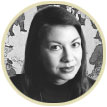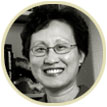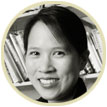
In recent years, China has become the fastest growing power in the world economy—and an increasingly prominent player on the world stage. The country's GDP and industrial outputs have grown exponentially, even as U.S. industrial outputs have shown a marked decline. China also has emerged as a central figure in several key multilateral negotiations, such as the effort to convince North Korea to give up its nuclear program. At SHASS, the rise of China has not gone unstudied—especially thanks to the half-dozen SHASS faculty from the Foreign Languages and Literatures Section, the History Faculty, and the Political Science Department who are experts on Chinese policy, cultural studies, and history. Collectively, their work comprises an extraordinary scale and scope, especially for a relatively small school like SHASS. We recently caught up with six faculty members to find out what they are working on, how it fits into the larger landscape of Chinese studies at SHASS, and what it's like to interpret China at MIT.
T.T. and Wei Fong Chao Professor of Asian Civilizations Peter C. Perdue is a member of the History Faculty. Perdue received the BA in 1970, the MA in East Asian Studies in 1973, and the PhD in History and East Asian Languages in 1981, all from Harvard University. The author of Exhausting the Earth: State and Peasant in Hunan 15001850 A.D., and the recently released China Marches West: The Qing Conquest of Central Eurasia, Perdue's research focuses on modern Chinese and Japanese social and economic history. Recipient of the 1988 Edgerton Award and the James A. Levitan Prize, he is a past holder of the Ford International Career Development Chair. Perdue's interest in Asia was fostered by an exchange program to Japan in 1968, which led to a senior thesis in Japanese history, and to subsequent explorations of Chinese language and history during graduate school.
PP: I think there are two big questions in the history of China in the long term. For pre-modern historians, the underlying question is, why did the whole sequence of Chinese empires last so long? A lot of things changed, but the whole bureaucratic state structure endured in one form or another for a long, long time. The modern historian looks at this from another angle: why did the last empire, the Qing—the biggest of all, and the longest-lasting—collapse in 1911? It had a huge tradition behind it, and yet when Western powers came in, it eventually collapsed. So you have, in a way, two incompatible questions. Why did the empire last so long? And why did it collapse? In terms of understanding contemporary China, one phenomenon that spans all of these different boxes and divisions is that China has always had some sort of frontier. It always had a border—many borders—where it had enemies or different people on the other side, and the Chinese either had to conquer them, or bring them in, or trade with them, or do something about them. And that's a continuity that goes from 500 B.C. to the present. I think somehow the whole process of expansion, and warfare, and all the things that went with it had a galvanizing effect on the bureaucrats and other people engaged in the expansion of the empire. But after it was over, the Qing started to lose steam. They started to think, "We've completed our mission. We have everything we need. We're huge, we're wealthy. The people are pretty well off." And the impulses for reform and change just started to weaken.
PP: True. Not that I advocate it, but history suggests that although war is very destructive, it is also creative, in some ways. It generates impulses for change.
PP: I think it's a great place to work. You can be a humanist, and you can also be engaged, in an academic sense. You can have ready access to the change-makers in this world: the scientists and engineers who make things happen. On the other hand, you do have to explain yourself, especially to your students. You have to speak their language—the science/engineering language—to some extent, but also say, "We, too, have structured, disciplined ways of looking at the world; they're just not the same as yours."
Associate Professor of Chinese Studies and 2005 co-winner of the MIT Edgerton Faculty Achievement Award, Emma J. Teng is a faculty member in Foreign Languages and Literatures. Like Perdue, Teng received the AB, AM, and PhD from Harvard in 1989, 1992, and 1997, in her case, all in East Asian Languages and Civilizations. Her first book, Taiwan's Imagined Geography: Chinese Colonial Travel Writing and Pictures, 16831895, a study of Chinese colonial discourses on Taiwan, places the China-Taiwan relationship in the historical context of Chinese imperial expansionism. She is currently working on a manuscript comparing Chinese and Chinese American representations of Eurasian interracialism at the turn of the 20th century. Emma Teng was a J. Paul Getty Postdoctoral Fellow in the History of Art and the Humanities (20002001), and holder of the MIT Class of 1956 Career Development Professorship (20022005). This past spring she was awarded the Levitan Prize in the Humanities for her project on Eurasian interracialism. Professor Teng teaches classes in Chinese literature, East Asian cultures, Asian American studies, and Women's Studies.
ET: Peter and I have a lot of overlap conceptually, or intellectually, which is in large part, of course, because he's been so influential on me as a colleague. But we also just have similar interests. In Taiwan's Imagined Geography: Chinese Colonial Travel Writing and Pictures, 16831895, I was interested in looking at the cultural and social discourse that surrounds frontiers. To me it's very interesting to think about how Chinese elites perceived "cultural others." What did they say about people whom they saw as racially other, culturally other? What was the lens through which their thinking was filtered?
ET: The way I actually see it is that representation and the real aren't necessarily in conflict. In other words, if you talk about representation, that doesn't mean it's disconnected from the real. And when you're talking about the real, it is always mediated through representation. I actually see these two things as linked, and not as being in opposition to one another.
ET: Well, we have personal relationships that go beyond the professional relationships. And I think that these enrich each other, so that we're really poised to work together as a team. Also our approaches, I think, are very complementary. We all do very different things, but they really complement each other. Jing Wang's work with the Critical Policy Studies of China group is especially important, because what she's trying to do is bring together two fields of China studies: cultural studies and policy studies. I think that's enormously important in terms of bridging these different fields, different areas of studies. And she's been a real leader in pioneering that approach.
Head of the Foreign Languages and Literatures Section and S.C. Fang Professor of Chinese Language and Culture, Jing Wang is also the founder and organizer of the MIT International Committee of Critical Policy Studies of China and a participating member of the MIT Laboratory for Branding Cultures. A native of Taiwan, Wang's current research interests include branding and marketing, advertising, popular culture, and media and cultural policies, with an area focus on the People's Republic of China. She is finishing a manuscript entitled Brand New China: Advertising, Media, and Commercial Culture. The author of The Story of Stone and High Culture Fever, Wang received the BA from National Taiwan University in 1975, the MA in Comparative Literature from University of Michigan in 1975, and the PhD in Comparative Literature from the University of Massachusetts, Amherst in 1985. She taught at Duke University for sixteen years before joining the MIT FL&L faculty.
JW: The Critical Policy Studies Committee is a multidisciplinary and international project that I developed after I arrived at MIT. We seek to build an interface between academic researchers and Beijing-based Chinese policy makers, and between scholars at MIT and other China scholars in Greater Boston and worldwide who are interested in policy questions, and in approaching these in an innovative way. China studies tend to be very conventional, and its paradigms are very old and outdated. But as yet, there's been no critical mass of scholars who could rise up and say, "This is problematic. It doesn't work in contemporary China." That's part of what we're about. The main focus for our next conference will be on the impact of international development aid agencies on the policymaking in China. I was in China this summer, and I spent some time talking to international donor organizations, and they all said, "We're so project-bound that we don't have time to sit down and communicate with China's policymakers about basic questions." The international aid organizations are at a crossroads, and they're not sure how to proceed now that China is questioning the development paradigm of the first world, so they very much welcome our intervention. We see ourselves as a bridge that brings together international donor organizations, Chinese policy makers, and international policy researchers.
JW: When we talk about markets in China, we're talking about at least six or seven tiers, and most people here in this country know about the first tier only: Shanghai, Beijing, Guangzhou. So I constantly have to remind myself to resist the temptation of homogenizing anything I say about China.
JW: When I came here, I saw the possibility of building synergy between our department and the Comparative Media Studies Program, because when you talk about advertising, you cannot not talk about media. So CMS was a big draw for me. Also, our department was interested in developing contemporary popular culture studies of East Asia. And in terms of the policy studies project, I needed to work where there is a large community of China studies scholars. And there's no better place in the entire U.S. than the Boston area.
JW: Yes, that's right. Our multidisciplinary research environment is really central to the exciting work that's going on.
Associate Professor of Political Science Edward Steinfeld studies the political economy of reform in socialist and post-socialist systems. His interests include Chinese politics and political economy, the political economy of transition, comparative institutional development, and comparative industrial policy. Steinfeld, who has been a member of the Political Science Department since 2001, previously taught management at the Sloan School. He received the AB, AM, and PhD in Government from Harvard University, in 1988, 1993, and 1996 respectively. Steinfeld's most recent book, Forging Reform in China, explores the process of state enterprise restructuring in China and attempts to illuminate the institutional drivers of economic behavior in the Chinese system. Steinfeld taught English in Nanjing University for a year after college, following the Tiananmen Square massacre. He found the experience transformative, and decided to focus on China's economic and political development when he returned to Harvard.
ES: What my work tries to do is to understand the relationship between certain kinds of institutional structure—governance systems, laws, and so on—and economic behavior. During the 1980s and '90s, the question in China was one of transforming socialist institutions into market institutions. My book Forging Reform In China looked at a series of experiments in reforming big, traditional state-owned enterprises; firms that sat at the core of the socialist system. Today, though, with the socialist system basically gone and a market put in its place, the issue has become one of understanding how this market and its constituent firms can be effectively governed. The old system is gone, but can the new market system be nurtured in such a way as to achieve sustainable and socially-beneficial growth? The thing I've learned from my previous work on state firms and banks, and my current work on China's energy sector, is that many of the textbook solutions for dismantling socialism and for building markets are at best ambiguous, at times irrelevant, and occasionally downright naïve. In my work I inevitably find that we still have a great deal to learn about how markets generally—including our own—actually work.
ES: That's right. China today is purposively trying to build a modern market system, purposively trying—in many respects—to duplicate institutions found in advanced industrial economies like the United States. What many people in China and the United States are realizing, though, is that economic institutions are often extremely context-specific, with their performance deeply affected by all sorts of other factors within the system. China has been extremely successful in charting a path toward growth, but at the same time, it is facing huge challenges in building a reliable legal system, establishing the bounds of state intervention, determining and achieving an equitable distribution of wealth, and doing all this in a socially and environmentally sustainable fashion. In many respects, Chinese reformers are groping for solutions under conditions of tremendous uncertainty. That there is so much uncertainty suggests that both we and they are still very early on in our efforts to understand how markets really work in particular national and cultural settings, and how market institutions really play out societally to affect actual economic outcomes.
ES: It's an illusion that there's some kind of secret information that can somehow allow you to understand the Chinese system, and that if you just interview the right person—a high-level governmental insider—you're going to get that secret information. Actually, the stuff that's sitting there on the surface—the pedestrian, the prosaic—is so complicated, and so fascinating, that all you need to do is ask very simple questions about how things work, or about how people live their lives. And inevitably, if you're willing to listen, you'll get really interesting answers. The complexity of the system is lived out every day by ordinary people who drive the Chinese economy. This complexity is fascinating to me, just as it's vexing to the high-level people who are trying to govern this kind of system. They too would love to find some sort of secret information that could allow them to figure out what is going on!
ES: I would say that it's just phenomenal. We really do learn from each other. It sounds trite, but it's true. A few of us are discussing co-teaching a couple of courses. I've done a seminar series at CIS—the "MIT Forum on the Rise of China"—with Taylor Fravel, Lily Tsai, myself, and Yasheng Huang from the Sloan School. So it's an excellent way to interact.
Assistant Professor of Political Science Lily Tsai focuses on issues of accountability, governance, and state development. Tsai's book manuscript, The Informal State: Accountability and Public Goods Provision in Rural China, examines the puzzle of why government officials in non-democratic systems where accountability is weak ever provide more than the bare minimum of public goods needed to maintain social stability. Preliminary findings from this research were published in The China Journal (2002). Additional research and teaching interests include state-society relations, the development of informal and formal institutions, bureaucratic politics, the use of moral authority as a political resource, and Chinese politics. Tsai received the BA in English and International Relations from Stanford University in 1996, the MA in Political Science from the University of California, Berkeley in 1998, and the PhD in Government from Harvard University in 2005.
LT: Yes. What I wanted to do was evaluate the impact of formal institutions, like democratic reforms, that have been implemented at the village level, as well as bureaucratic institutions that are supposed to help higher levels hold lower levels accountable, as well as informal social institutions, and see how all these impacted the performance of local governments, and how local officials behave. And what I didn't find was any evidence showing that the democratic reforms that have been implemented at the village level have any significant effect on how well the local government performs. There are lots of reasons for this. But basically, democracy is not the same thing as accountability—and elections are not the same thing as democracy, either. You need a lot of supplementary institutions that aren't necessarily in place to make elections effective.
LT: Well, elections by themselves certainly don't deliver the goods. In the vast majority of rural China, elections aren't even that well implemented. But even in the areas where they are well implemented, they can only do so much. They only happen every three years. Sure, you can vote a bad official out after three years, but maybe by then he's already embezzled all the money. So that's a problem.
LT: Politically, the government has decided to allow a lot more social space. So as long as things are not directly controversial, you know, people are allowed to discuss things, and even write about those topics, to some extent. That was much less the case in previous years.
LT: The fact that a relatively small social sciences and humanities school like this one has so many people working on China is a huge attraction. There are very few political science departments in the country that have three people studying Chinese politics, and that's fantastic for me. It gives me all sorts of resources that I wouldn't have otherwise. In terms of teaching at a science and engineering school, my students have incredibly advanced analytical skills. As a teacher, you seek to impart information to your students—but maybe more important, you try to teach them skills that they can apply and use in whatever they decide to do. So in that respect, teaching the undergraduates here has been incredibly exciting and fun, because their analytical skills are already so developed that you can really go places with them.
Assistant Professor of Political Science Taylor Fravel studies international relations, with a focus on international security, China, and East Asia. Fravel has published articles in International Security, Foreign Affairs, The China Quarterly, Armed Forces & Society, Asian Survey, and Current History, as well as in edited volumes. He is currently completing a book manuscript that examines China's settlement of territorial disputes since 1949 by comparing strategies of cooperation with coercion. Fravel received the BA from Middlebury College in 1993, the MA from the University of Oxford in 1995, the MSc from the London School of Economics in 1996, and the PhD from Stanford University in 2003. Fravel lived in Taiwan with his family for the last two years of high school, sparking his interest in Chinese culture.
TF: China has had territorial disputes with each and every land neighbor, and each and every maritime neighbor. So take your pick. China fought a war over territory with India. It almost fought a major, potentially nuclear, war with the Soviets over disputed areas. There were several armed conflicts with Vietnam over the Paracel and Spratly Islands. There's the potential for conflict with Japan over the Senkaku Islands. And China also fought a war with Vietnam—although in my view, that war was more about other foreign policy goals, such as countering Soviet influence in the region, than it was about territory.
TF: It's hard to identify just one driver. Clearly, economics plays a very important role, because China now depends more on the outside world, in some respects, for continuing its economic growth. Another layer to China's increasingly prominent diplomatic activity in the last 10 years has to do with a notion of becoming a responsible great power. In part, China's leaders recognize that in order to continue to grow domestically, they need to assuage concerns that neighbors in other states will have about how China will use its increasing power and influence. And finally one could also point to a sense of pride in having achieved—or regained—a place at the table. China's leaders and the Chinese people take great pride in what they've been able to achieve through two decades of economic reform, and want to play a more active role in the world as a result.
TF: The overall rate of violence or use of force in territorial disputes has fallen, as many of China's disputes have been settled through compromise agreements. China had 23 disputes when the People's Republic of China was founded in 1949, or that emerged shortly after the founding. Today they have only six remaining disputes. Of course, some of these disputes, such as Taiwan, have a relatively high probability of some sort of force being used in the future due to the stakes that are involved. There's a reason why these disputes have been more difficult for China to settle.
TF: It's quite rare to be in a political science department and have more than one person who specializes in China. It's great to have so many different people that you can speak to, and it creates many opportunities to collaborate and share ideas. For example, Ed Steinfeld and I are planning to co-teach a class next year called "The Rise of China," which I'm really looking forward to. |
|
|||||||||||||||||||||||||||||||||||||||||||||||||





